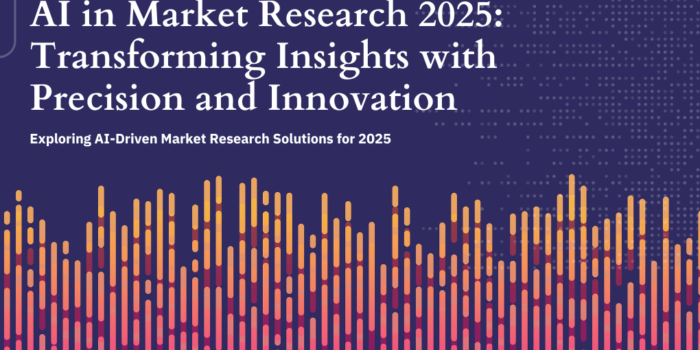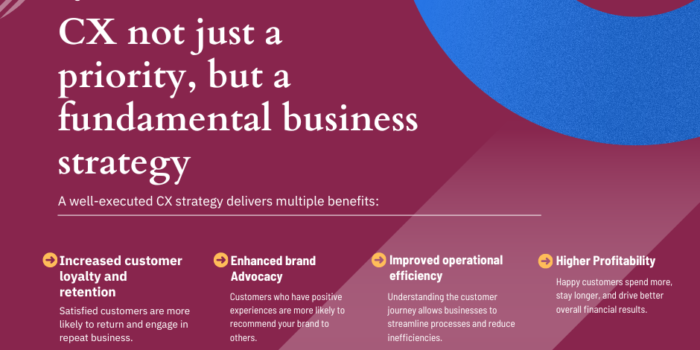Traditional marketing and sales are increasingly being disrupted by developments in AI and machine learning. One of the most recent innovations that has recently generated a lot of interest is generative AI.
Generative AI or Gen AI, short for Generative Artificial Intelligence, is a branch of artificial intelligence that focuses on creating models and systems capable of generating new content, such as images, text, music, or other forms of data. Unlike traditional AI systems that are designed for specific tasks with predefined rules, generative AI models learn from large datasets to mimic patterns and produce new, original content.
It is readily becoming a crucial part of marketing companies’ strategies. In addition to helping marketers with a variety of customer-related jobs, Gen AI has shown the ability to contribute to the creative side of the marketing process as well, generating material for multiple channels and creating social media photos, posts, and audio. As a result, players in both B2B and B2C spaces, now are steadily adapting to incorporating generative AI in aspects like customer experience, productivity, and growth.
The generative AI market is projected to skyrocket to $63 billion by 2028, up from $8 billion in 2021. With the fast-paced nature of digital-first business, these technologies are becoming indispensable tools. In fact, 7 out of 10 marketers in the U.S. have already embraced generative AI to empower their work.
Inevitably, it is clear that generative AI is poised to have large-scale implications for businesses across sectors, sooner, or later. Therefore, it is important to understand the role of these revolutionizing tools to better replicate their potential in sales and marketing efforts.
In this article, we outline the potential within this ever-evolving field and propose constructive avenues to pursue.

How Can Gen AI Impact Marketing and Sales Productivity and Growth?
Enhanced Personalized marketing:
About 70% of customers are willing to remain loyal to a brand if companies are successful in offering highly personalized experiences. With this growing consumer expectation for personalization, generative AI can help marketers elevate their efforts to reinforce brand positioning. More than 50% of marketers are already experimenting with these tools and have incorporated them into their strategies.
Better Insight Discovery:
When combined with intuitive data platforms, generative AI can deliver real-time insights on customer and market trends. Having an edge over traditional AI systems that primarily work based on simple web scraping and prioritization, generative AI’s advanced algorithms can analyze customer and market data while providing actionable insights on how to segment and target relevant audiences. These skills can help firms to assess and identify high-quality leads, which will result in more successful, customized lead-activation campaigns.
Elevated Sales Outcomes:
Research shows that a fifth of current sales team functions could be automated. Given that 60% of customers expect companies to respond instantly respond with up-to-date information while transferring across departments, Gen AI can effectively supplement sales efforts, by going beyond traditional initial sales-team engagement. By deploying suitable gen AI tools carved for unique business needs, businesses can ensure continuous critical support throughout the customer journey and sales process, from proposal to deal closure. It can be utilized to send hyper-personalized follow-up emails at scale and contextual 24/7 chatbot support. This can effectively forge better customer experiences, thereby increasing brand loyalty sentiments.
Streamlining Marketing Expertise:
Marketing teams often need to write a lot of content, including ad copy, product descriptions, and blog articles, which can take considerable time and effort. Taking the heaving lifting out of content creation, generative AI can help streamline the marketing team’s expertise to focus more on strategizing. Gen AI has the potential to fundamentally disrupt how marketing teams function. It can generate content, like product descriptions and visual designs that are accurate, compelling, and also optimized for search engines at the same time. Even though nearly 70% of marketers state that it requires human oversight to ensure a brand’s voice remains authentic in Gen AI-generated content, it is undeniable that it can effectively help them to readjust focus on carving more customer-centric creative content and strategies.
Facilitating Generative AI Implementation:
The most profound use case of Gen AI is to increase efficiency and align more attention to higher-value work, with nearly two-thirds of marketing leaders in the B2B space voting for the same.
However, due to the extraordinarily quick rate of development in AI technology, generative AI has several limits. From intellectual property infringement to data privacy and security, several challenges need careful mitigation techniques and control. The necessity for human supervision and responsibility is obvious, and it may need the development of new roles and competencies to properly capitalize on prospects.
Identify Potential Use-Cases:
To effectively unleash Gen AI’s potential, the first step is to perform a comprehensive evaluation of your existing marketing and sales technology infrastructure and skill sets. This step needs to take into consideration the key stakeholders involved. Creating a cross-functional task force comprising members from diverse departments, including marketing, sales, pricing, and IT, therefore, is highly significant to thoroughly examine Gen AI opportunities and rigorously assess the feasibility of implementing them. Following this, or simultaneously, explore potential collaborations with open-source or cost-effective tech providers to facilitate Gen AI implementation.
Identify Milestones with High-returns:
Identify milestones that can enunciate higher returns by incorporating Gen AI while also being without significant costs or risks. For instance, in a customer-facing business that requires consistent marketing communications, Gen AI can be considered to automate certain aspects, like prospecting large-scale outreach emails, freeing the marketing teams for more strategic tasks.
Integrate Sales Cycle Segments:
To truly understand the potential of Gen AI, conduct captivating experiments in focused segments of your sales cycle, such as the top-of-the-funnel. Pilot two or three use cases that resonate with your target audience and closely monitor the outcomes. This would further require empowering the sales team by training them on Gen AI. Conduct workshops on Gen AI fundamentals to build confidence and enable the team to explore various potential applications.
Strong Leadership Guidelines:
Establishing clear guidelines for Gen AI usage is crucial to maintaining ethical standards and data security. Therefore, leaders must reiterate and set guidelines for the team to ensure the brand’s story is consistent and abide by quality and compliance standards.
With Gen AI becoming a cornerstone of marketing leadership, the path forward lies in strategic implementation and strong leadership to redefine growth strategies and impact in the dynamic digital landscape.
Knometrix is a leader in market research and intelligence services. Equipped with years of industry experience and a proficient team, Knometrix can assist you with a range of expert insights and strategic research services including go-to-market strategy, exhaustive market research, competitive landscape, Opportunity Assessment, Customer Research, Industry Benchmarking, etc. Whether you are looking to launch a new venture, grow your existing business, or looking to move into a new and emerging market, with our range of customized market research and customer intelligence capabilities, you can successfully navigate the uncertainties and unlock your business’ maximum potential.
Talk to our expert consultants and discover highly-actionable insights to take your business to the next level.






 Market Research
Market Research Consumer Research
Consumer Research Industry Research
Industry Research Market Entry Strategy
Market Entry Strategy Feasibility Studies
Feasibility Studies Product Research
Product Research User Research
User Research Automobile & Mobility
Automobile & Mobility Banking and Finance
Banking and Finance Consumer Products & FMCG
Consumer Products & FMCG Ecommerce & Retail
Ecommerce & Retail Industry & Manufacturing
Industry & Manufacturing Government & Public Sector
Government & Public Sector Industry Associations
Industry Associations Technology & Software
Technology & Software Venture Capital & PE
Venture Capital & PE Consulting & Advisory
Consulting & Advisory India Entry Market Research
India Entry Market Research Innovation Consulting
Innovation Consulting KX Market Radar
KX Market Radar Business Model Development
Business Model Development Gen Z Navigator
Gen Z Navigator